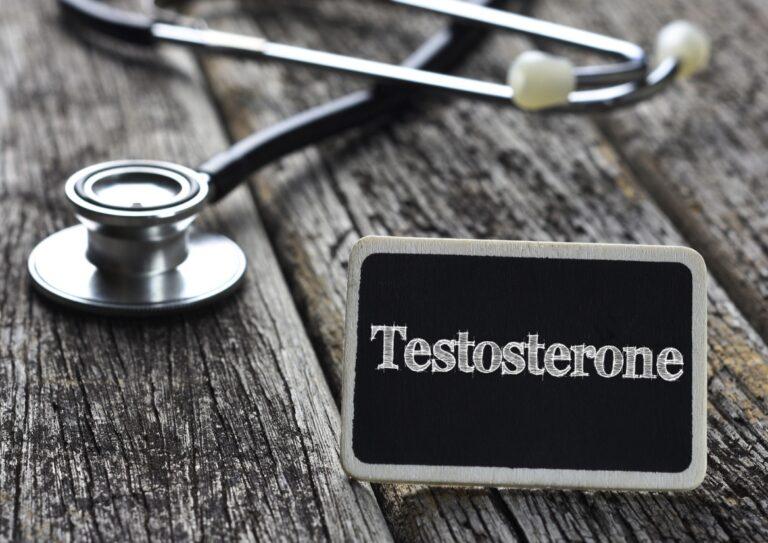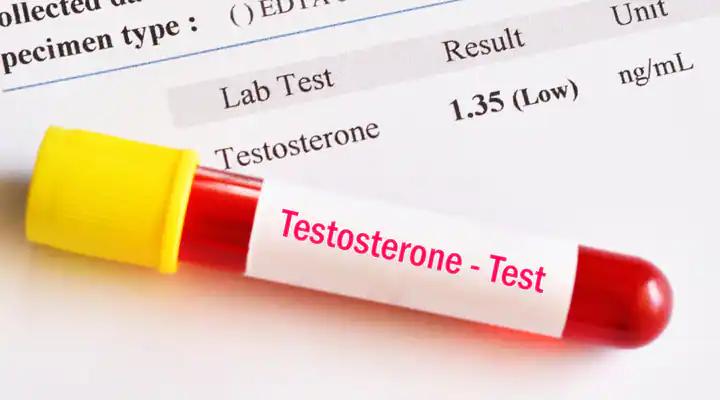
October 15, 2025 (Current Version)
October 15, 2025
September 17, 2025
March 28, 2025
Testosterone replacement therapy has become a topic of intense interest and debate in recent years. As men age, their testosterone levels naturally decline, leading some to seek medical treatment to boost their hormone levels. This treatment reduces symptoms associated with lower testosterone levels, such as reduced libido, fatigue, and muscle loss.
One of the main concerns surrounding testosterone hormone replacement therapy is its possible link to cancer, especially prostate cancer. Medical professionals often monitor prostate-specific antigen levels (PSA levels) in patients undergoing testosterone therapy. This article will explore the relationship between testosterone replacement and cancer risk and discuss the pros and cons of this treatment option for men considering it.
What is testosterone?
Testosterone, a hormone primarily produced by the gonads (testicles in males and ovaries in females), plays a crucial role in human development and bodily functions. While present in both sexes, testosterone levels are naturally much higher in individuals assigned male at birth.
Understanding Testosterone Replacement Therapy
What is TRT?
Testosterone replacement therapy (TRT) is a medical treatment designed to restore normal levels of testosterone in men with low levels of testosterone, a condition known as hypogonadism. This therapy aims to reduce symptoms associated with testosterone deficiency, such as decreased sex drive, erectile dysfunction, fatigue, and loss of muscle mass. TRT has become increasingly popular, with millions of men using prescription testosterone injections or gels to boost their hormone levels.
How does TRT work?
TRT works by introducing testosterone into the body to supplement or replace the naturally produced hormone. The goal is to return serum testosterone levels to normal range, typically between 400 and 700 ng/dL. This treatment can positively affect various bodily functions, including muscle and bone health, cognition, and sexual function. However, it’s important to note that TRT is not a fountain of youth and may not restore physical fitness or sexual function to youthful levels.
Common forms of TRT
There are several FDA-approved forms of testosterone replacement therapy available:
- Gels and solutions: These are applied daily to the skin, usually on the upper arms, shoulders, or thighs. The testosterone is absorbed through the skin and into the bloodstream
- Injections: Testosterone can be administered via intramuscular injections. These may be short-acting, requiring weekly or bi-weekly shots, or long-acting, with injections given every 10-12 weeks
- Patches: Transdermal patches are applied once daily to the skin, providing a steady release of testosterone
- Pellets: Small testosterone pellets can be surgically implanted under the skin, releasing the hormone over 3-6 months
- Nasal gel: This form is applied to the inside of the nose three times daily
- Buccal system: A patch is placed on the upper gums, releasing testosterone through the oral tissues
Each form of TRT has its advantages and potential side effects. For instance, gels provide stable hormone levels but require careful handling to avoid transferring testosterone to others. Injections may cause fluctuations in testosterone levels between doses.
The link between TRT and cancer risk
Prostate cancer concerns
The relationship between testosterone replacement therapy (TRT) and prostate cancer has been a subject of ongoing debate. Many men undergoing TRT worry about the increased risk of potentially developing prostate cancer. However, recent research suggests that this concern may be incorrect. A study has shown that testosterone treatment does not raise a man’s risk of developing prostate cancer. Some evidence indicates that it may lower the risk of aggressive prostate cancer.
Other potential cancer risks
While the focus has primarily been on prostate cancer, researchers have also examined the potential link between TRT and other types of cancer. To date, no solid evidence has appeared to suggest that TRT increases the risk of developing other forms of cancer. However, it’s important to note that long-term studies in large populations over many years are still lacking.
What the research says
Clinical trials have investigated the relationship between testosterone levels and prostate cancer risk. The Endogenous Hormones and Prostate Cancer Collaborative Group looked at 18 prospective meta-analysis studies and found no association between prostate cancer. Interestingly, some research has indicated that men with low testosterone levels may have a higher risk of developing more aggressive forms of prostate cancer.
Current practice guidelines recommend that men undergoing TRT should have their prostate-specific antigen (PSA) levels monitored regularly. If the PSA rises significantly within a short period, further evaluation for prostate cancer should be considered. It’s worth noting that TRT may increase PSA production, which could lead to earlier detection of prostate cancers that were previously masked by low testosterone levels.
While the available evidence does not support a direct link between TRT and increased cancer risk, the decision to undergo TRT should be made after carefully weighing the potential benefits against any risks. Discussing individual health factors and medical history with a healthcare professional is important.
Weighing the benefits and risks of TRT
Potential benefits of TRT
Testosterone replacement therapy has the potential to improve various aspects of a man’s health and well-being. Men undergoing TRT often experience:
- Increased libido
- Enhanced sexual function
- Improved quality of life
- Improvements in bone density
- Increase in muscle mass
- Improvement in body composition
- More energetic and alert
- Better mood
- Increased cognitive function
Additionally, TRT has shown promise in reducing the risk of heart disease and improving overall longevity in some studies.
Side effects and risks
Despite its potential benefits, TRT is not without risks. Some men may experience side effects such as:
- Acne
- Sleep apnea
- Breast enlargement
Additionally, there is a concern about the treatment’s impact on prostate health. While TRT doesn’t appear to increase the risk of prostate cancer, it may cause an enlargement of the prostate gland. This can lead to urinary symptoms in some men. Another potential risk is an increase in red blood cell counts, which can thicken the blood and potentially increase the risk of blood clots. Regular monitoring of prostate-specific antigen levels is crucial during treatment to reduce these risks.
Factors to consider before starting TRT
Before initiating testosterone replacement therapy, several factors need careful consideration. A thorough evaluation of symptoms and blood testosterone levels is essential to confirm the diagnosis of hypogonadism. Men should discuss their fertility goals with their healthcare provider, as TRT can suppress natural testosterone production and sperm count. Risk factors such as age, and the presence of other medical conditions also play a role in determining the appropriateness of TRT.
It’s important to have an open discussion with a healthcare provider about the potential benefits and risks, considering individual health factors and medical history. Patients should also be prepared for regular follow-up appointments and blood tests to monitor the treatment’s effectiveness and potential side effects.
Conclusion
Testosterone replacement therapy remains a complex topic with both potential benefits and risks to consider. The current evidence suggests that TRT doesn’t have a significant impact on cancer risk, particularly prostate cancer. However, it’s crucial to remember that every man’s situation is unique. Careful monitoring and regular check-ups are essential to ensure the treatment’s safety and effectiveness.
Sources
- Testosterone therapy: Potential benefits and risks as you age – Mayo Clinic
- Testosterone replacement therapy: Yes or no | MD Anderson Cancer Center
- Side effects of hormone therapy in men | Cancer Research UK
- Hormone Therapy for Prostate Cancer Fact Sheet – NCI
- https://www.health.harvard.edu/mens-health/is-testosterone-therapy-safe-take-a-breath-before-you-take-the-plunge Is testosterone therapy safe? Take a breath before you take the plunge – Harvard Health
Medical Disclaimer
NowPatient has taken all reasonable steps to ensure that all material is factually accurate, complete, and current. However, the knowledge and experience of a qualified healthcare professional should always be sought after instead of using the information on this page. Before taking any drug, you should always speak to your doctor or another qualified healthcare provider.
The information provided here about medications is subject to change and is not meant to include all uses, precautions, warnings, directions, drug interactions, allergic reactions, or negative effects. The absence of warnings or other information for a particular medication does not imply that the medication or medication combination is appropriate for all patients or for all possible purposes.








